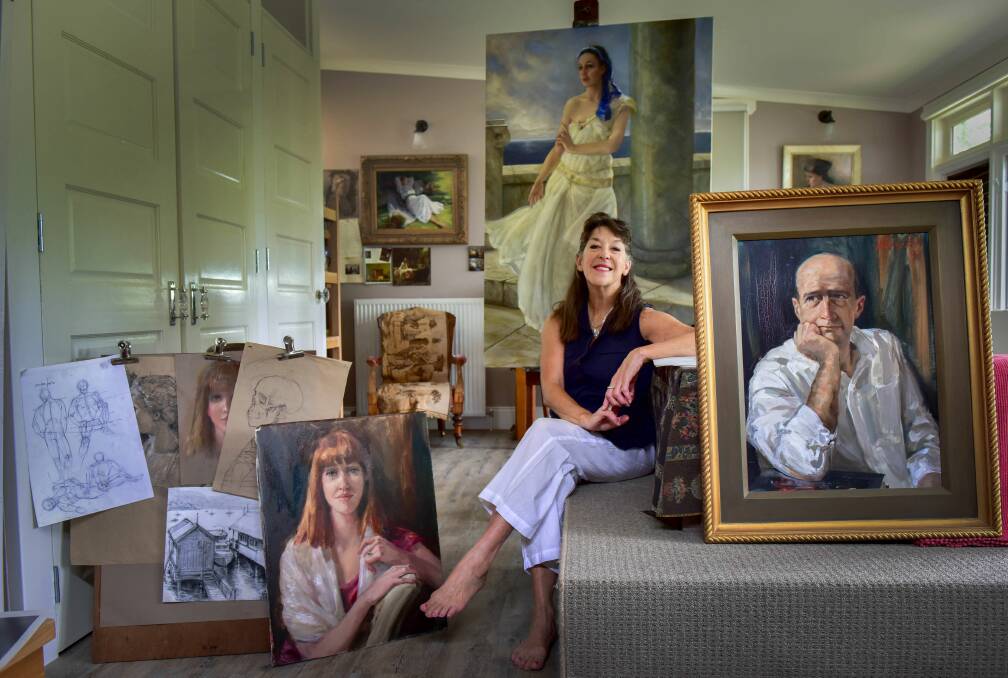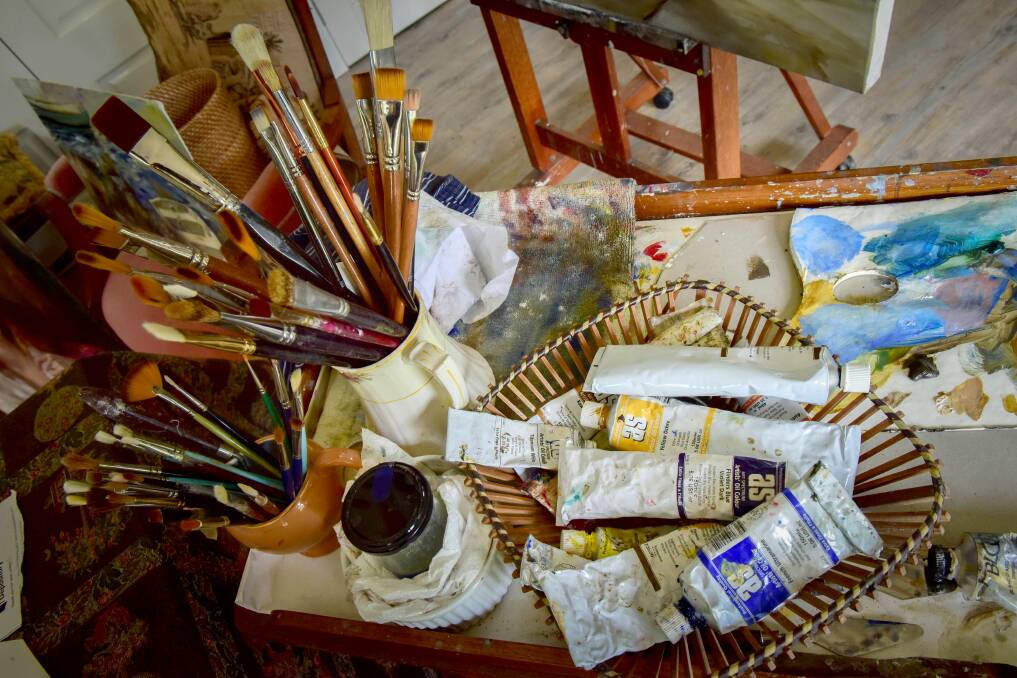CLASSICAL ARTWORK is experiencing a new-found appreciation, and one artist hopes to share the classicist techniques she has perfected over more than four decades with others who wish to learn the craft.
Subscribe now for unlimited access.
or signup to continue reading
BEGINNINGS
Deny Christian developed a passion for painting from a very young age.
“Painting was always in my blood,” Christian said.
She began dabbling in painting and experimenting with techniques at 12 years of age. In post war Australia, there were few painting schools for her to hone her craft, with places available only to a privileged few, so Christian taught herself the skills to draw, and subsequently, how to paint.
Painting in her garden shed, Christian starting exhibiting some of her works in galleries from the age of 14. Going on to study nursing as a young adult, she taught herself anatomy, perspective and composition through private and impassioned study of the work of the great classical masters in her spare time.
“I didn’t want to prostitute my art. I didn’t want to have to make money from painting or have the pressure of doing things for the public so I kept my day job,” she said.

CAREER
After graduating from nursing, Christian set off to Europe. She arrived in Greece in the 1970s. Then, after marrying, she travelled to New Orleans, where she experienced her first taste of portraiture.
“I threw myself in with the other artists sitting around Jackson Square. I bought a box of pastels and sat there for three months, painting about 10 portraits a day. It was great.”
She went on to spend a few weeks painting portraits on the steps of Montmartre, Paris, before returning to Australia in 1974 and setting up a studio in Sydney. She spent the following 30 years in Berry, New South Wales, where she built on her portraiture techniques and gained a reputation for her application of skills in fine art.
After moving to Hobart, in 2014, Christian developed and then facilitated a school of classical painting, where students were taught the techniques of classical art.
She has received acknowledgment of her work with several prizes and commissions, including:
- The Portia Geach Portrait prize, 1974 (highly commended)
- The Packer's Prize in the Archibald Prize, 1999, for a portrait of Garry McDonald
- The official Premier's Portrait of Tasmania, 2015: Ms Lara Giddings, MP.

‘PASSIONISM’
Stemming from the work of Velasquez and Manet, to Waterhouse and Australia’s own Hugh Ramsay and Tom Roberts, the art of fine classical painting is experiencing a resurgence across the globe. Dubbed ‘passionism,’ this modern revival of classical painting techniques stems from Scandanavia and can be aligned with Christian’s work, which embraces all aspects of classicism; figures, to portraiture, still life and landscapes.
“I always paint from life, never from photographs – that way you get the power and emotion of your sitter because they are sitting there in front of you,” she said. “Portraiture from life is the most powerful, incredible form.”
Christian always starts with a sketch of the anatomy of a subject and then layers on the clothing and other details.
Christian said passionism was becoming more popular as people were beginning to lose interest in the abstraction techniques favoured in the 70s and were reverting to admiring classicist works.
ATELIER
Traditionally, classical painters have learnt their craft at ateliers, at which an artist undertakes a sort of apprenticeship under the tutelage of a master painter they admire and respect. This apprenticeship lasts for a tuition period of six years.
“To learn how to draw and paint is a long process which you have to learn. First of all, you have to learn how to be in charge of your pencil and paper. Then you can proceed through a lifetime of experimentation to learn how to actually paint,” Christian said.
But Christian wants to make this process easier for other artists through weekly classes at her Daylesford studio; The New School of Classical Painting.
Armed with her experiences as a professional painter for the past 45 years, she hopes to pass on her skills to her students,
“All my life I’ve taught myself. And now I want to teach others the techniques I have spent a lifetime perfecting,” Christian said.
Her school, a small, private atelier, will offer courses for those who wish to study drawing, and then painting, in a classical manner.
“The love of a great canvas with meaningful composition and powerful presence through technical prowess is my world,” Christian said. “Attaining the ability to draw and paint is the beginning.”
From learning classical techniques, a student can go anywhere, Christian said.
“If you are in charge of your ability to paint classically, you can then go off and be an expressionist or post-modernist, but you will have the tools with which you can create.”
The New School of Classical Painting will launch on Saturday, January 26 at 2pm, where those interested can learn more about the workshops and how to progress with learning classical techniques.
Bookings are essential. Email for more information email denychristiandesign@gmail.com or visit her website: www.newschoolofclassicalpainting.com

